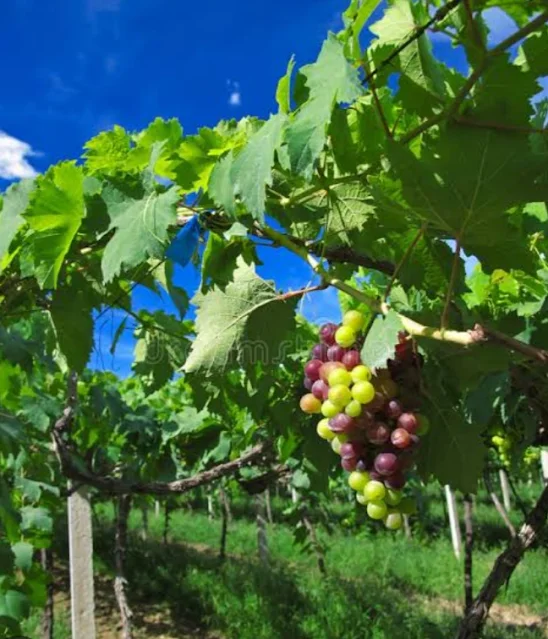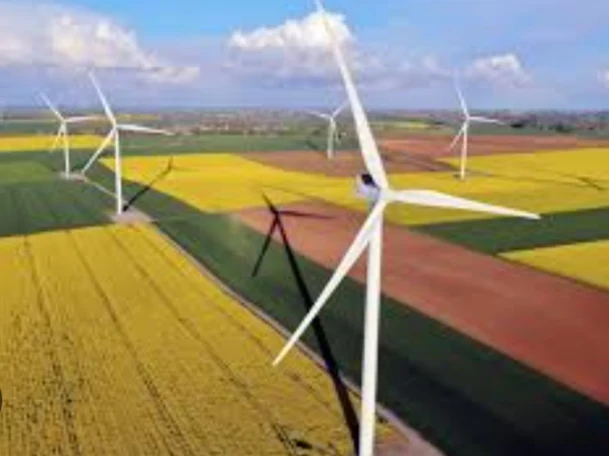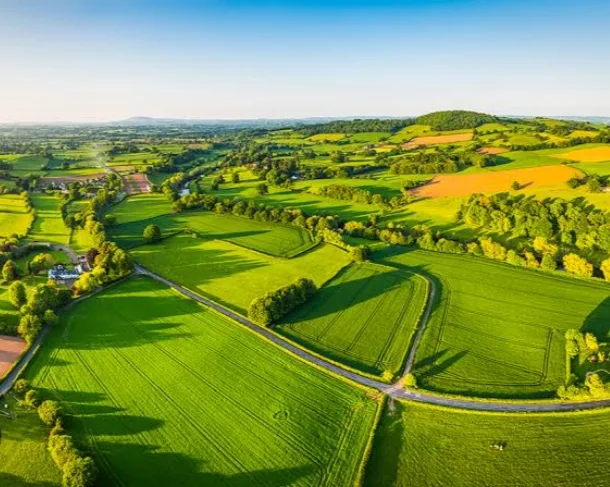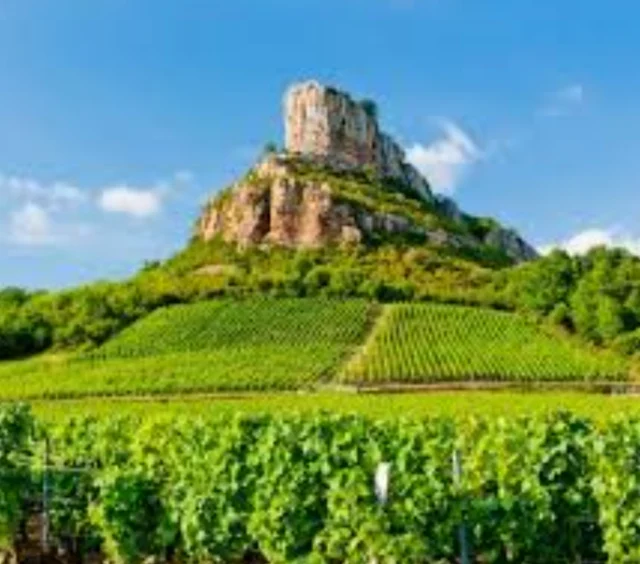Introduction France's Modern Agriculture
France's modern agriculture stands as a testament to innovation, employing precision farming, cutting-edge technology, and sustainable practices.
Modern Agriculture in France: A Table Overview
France is a major agricultural producer in Europe, known for its diverse range of products and high-quality standards. Here's a table outlining some of the key features:
| Feature | Modern Agriculture in France |
|---|---|
| Crop Production | Wheat, barley, corn, sugar beets, rapeseed, and fruits |
| Livestock Production | Beef, pork, poultry, dairy, and eggs |
| Wine Production | Renowned for its high-quality wine, especially from regions like Bordeaux, Burgundy, and Champagne. |
| Technology Adoption | Increasingly adopting precision agriculture, biotechnology, and automation. |
| Sustainability Focus | Strong emphasis on sustainable practices, including organic farming and environmental protection. |
| Government Support | Government policies and subsidies to support the agricultural sector. |
| Regional Specialization | Different regions specialize in specific agricultural products, such as wine in the southwest and dairy in the northwest. |
| Export-Oriented | A significant exporter of agricultural products, particularly to other European countries. |
| Challenges | Facing challenges like climate change, water scarcity, and competition from other European countries. |
With a commitment to research, diverse crop cultivation, and government support, French agriculture exemplifies a harmonious blend of tradition and contemporary methods, ensuring both productivity and environmental stewardship.
This synergy extends to the integration of agroecology, where the balance between ecological principles and agricultural efficiency takes center stage. High-tech equipment, including GPS-guided machinery and sensor technologies, underscores a commitment to precision and efficiency in farming practices.
Furthermore, the embrace of organic farming reflects a shift towards environmentally conscious agriculture. The cultivation of a diverse range of crops, coupled with a focus on quality and sustainability, positions France as a global leader in agricultural exports, contributing to the world's food supply.
In essence, France's modern agricultural landscape thrives on a foundation of research, adaptability, and a forward-thinking approach. This not only sustains the nation's agricultural sector but also sets an example for a globally relevant and resilient model of modern farming.
Data for France Agriculture
According to the French Ministry of Agriculture or international agricultural organizations
Cereal Production (2021)
- Wheat: Approximately 36 million metric tons.
- Barley: Around 12 million metric tons.
- Maize: Roughly 15 million metric tons.
- Oats: Approximately 900,000 metric tons.
Oilseed Production (2021)
- Rapeseed: Approximately 4.5 million metric tons.
- Sunflower seeds: Around 1.8 million metric tons.
Fruit and Vegetable Production (2021)
- Apples: Over 1.5 million metric tons.
- Tomatoes: Approximately 3 million metric tons.
- Potatoes: Around 6 million metric tons.
- Grapes: Over 5.5 million metric tons.
Livestock and Dairy (2021)
- Cattle: Approximately 19 million heads.
- Poultry: Over 70 million heads.
- Sheep: Around 7 million heads.
- Milk production: Approximately 24 billion liters.
Wine Production (2021)
- France produces around 42-45 million hectoliters of wine annually, making it the world's largest wine producer.
Organic Farming (2021)
- Organic agricultural land: Over 2 million hectares.
- Organic producers: More than 49,000.
Key aspects of modern agriculture in France
France is a leader in modern agriculture, employing advanced techniques and technologies.
Key aspects of modern agriculture in France include:
1. Precision Farming: Farmers in France use precision farming techniques, such as GPS-guided tractors and drones, to optimize field-level management with regard to crop farming.
2. Agroecology Practices: There is a growing emphasis on sustainable and environmentally friendly farming methods, including agroecology. This approach focuses on integrating ecological principles into agricultural systems.
3. High-Tech Equipment: French farmers utilize state-of-the-art machinery and equipment, including advanced irrigation systems, automated machinery, and sensors that monitor soil conditions and crop health.
4. Research and Innovation: France invests in agricultural research and innovation. Research institutions and organizations collaborate with farmers to develop and implement cutting-edge technologies and practices.
5. Crop Diversity: France has a diverse range of crops, and modern agriculture involves the cultivation of various cereals, fruits, vegetables, and specialty crops.
6. Organic Farming: The demand for organic products is growing in France, leading to an increase in organic farming practices. Many farmers are adopting organic methods and obtaining certification.
7. Government Support: Government policies and subsidies support the agricultural sector. These initiatives aim to enhance sustainability, promote innovation, and ensure the economic well-being of farmers.
8. Global Agricultural Exports: France is a significant exporter of agricultural products. Its farmers contribute to the global food supply, exporting items like wine, cheese, cereals, and dairy products.
These factors collectively contribute to France's reputation as a modern and advanced player in the field of agriculture.
Modern Agriculture in France: Precision Farming
In the realm of modern agriculture in France, Precision Farming emerges as a defining practice. This approach leverages cutting-edge technologies to enhance efficiency and optimize agricultural processes.
Key facets of Precision Farming in France include:
1. GPS-Guided Machinery: Farmers utilize GPS technology to precisely navigate tractors and other machinery, enabling accurate and efficient field operations. This minimizes overlap and waste while maximizing productivity.
2. Drones for Monitoring: Drones equipped with advanced sensors are employed to monitor crop health, soil conditions, and overall field performance. This aerial perspective allows for early detection of issues and targeted interventions.
3. Variable Rate Technology (VRT): VRT is applied to adjust inputs like fertilizers and pesticides based on specific needs across different areas of a field. This tailored approach optimizes resource utilization and minimizes environmental impact.
4. Automated Systems: Automation is integrated into various farming processes, from planting to harvesting. Automated machinery contributes to labor efficiency and precision in tasks such as seeding, weeding, and harvesting.
5. Data-Driven Decision-Making: Farmers in France harness data analytics to make informed decisions. Collecting and analyzing data on weather patterns, soil health, and crop performance enables strategic planning and proactive measures.
6. Smart Irrigation Systems: Water management is optimized through the use of smart irrigation systems. These systems monitor soil moisture levels and weather conditions, ensuring that crops receive the right amount of water at the right time.
7. Farm Management Software: Comprehensive software solutions assist farmers in planning, monitoring, and analyzing their operations. These tools enable better management of resources, crop rotation planning, and financial analysis.
Precision Farming in France exemplifies a commitment to efficiency, sustainability, and the responsible use of resources. By integrating these advanced technologies, French farmers are at the forefront of a global movement towards more precise and sustainable agricultural practices.
Modern Agriculture in France: Agroecology Practices
Modern agriculture in France places a significant emphasis on agroecology practices, reflecting a commitment to sustainable and environmentally friendly farming methods.
Key aspects of agroecology in French agriculture include:
1. Biodiversity Integration: Agroecology encourages the integration of diverse crops and promotes biodiversity within agricultural landscapes. This approach helps enhance ecosystem resilience and reduce the reliance on chemical inputs.
2. Crop Rotation and Diversification: Farmers in France employ crop rotation and diversification strategies to improve soil health and minimize the risk of pests and diseases. This practice contributes to a more balanced and resilient agricultural ecosystem.
3. Cover Cropping: Cover crops are used to protect and improve soil structure during periods when the main crops are not growing. This technique helps prevent soil erosion, suppress weeds, and enhance nutrient cycling.
4. Agroforestry: Integrating trees and shrubs into agricultural systems is gaining popularity in France. Agroforestry practices contribute to improved soil fertility, enhanced biodiversity, and can provide additional sources of income for farmers.
5. Natural Pest Management: Agroecology encourages the use of natural predators and beneficial insects to control pests, reducing the reliance on synthetic pesticides. This approach aligns with sustainable pest management practices.
6. Conservation Tillage: Farmers adopt minimal tillage or no-till practices to conserve soil structure and moisture. This reduces soil erosion, enhances water retention, and promotes long-term soil health.
7. Community and Local Collaboration: Agroecology fosters community engagement and collaboration among farmers. Shared knowledge and practices contribute to the success and widespread adoption of sustainable farming methods.
8. Organic Farming Initiatives: Many farmers in France are embracing organic farming methods, eliminating synthetic chemicals and prioritizing natural inputs. This aligns with consumer demand for environmentally friendly and healthy agricultural products.
Agroecology practices in France showcase a holistic approach to farming that seeks to balance ecological and agricultural goals. This sustainable approach not only benefits the environment but also contributes to the long-term viability of French agriculture.
Modern Agriculture in France: High-Tech Equipment
In the realm of modern agriculture in France, the integration of high-tech equipment plays a pivotal role, contributing to efficiency, precision, and sustainability.
Key features of high-tech equipment in French agriculture include:
1. GPS-Guided Tractors and Machinery: Farmers employ GPS technology to precisely navigate tractors and machinery, optimizing field operations, reducing overlap, and improving overall efficiency in tasks such as planting and harvesting.
2. Sensor Technologies: Advanced sensors are utilized to monitor various parameters such as soil moisture, nutrient levels, and crop health. This real-time data enables farmers to make informed decisions regarding irrigation, fertilization, and pest control.
3. Drones for Monitoring and Mapping: Drones equipped with cameras and sensors provide a bird's-eye view of fields. Farmers use this technology for crop monitoring, assessing plant health, detecting diseases, and creating detailed field maps for precision agriculture.
4. Automated Machinery: The adoption of automated machinery, including robotic harvesters and autonomous tractors, enhances labor efficiency and reduces the need for manual intervention in certain farming operations.
5. Telematics and Connectivity: Farm equipment is equipped with telematics systems, allowing farmers to remotely monitor and manage machinery. This connectivity enhances overall operational control and facilitates timely maintenance.
6. Variable Rate Technology (VRT): VRT is employed for precise application of inputs such as fertilizers and pesticides. By adjusting application rates based on specific field conditions, farmers optimize resource use and minimize environmental impact.
7. Smart Irrigation Systems: High-tech irrigation systems use sensors and weather data to tailor water delivery based on real-time conditions. This technology improves water-use efficiency and contributes to sustainable water management.
8. Farm Management Software: Comprehensive software solutions enable farmers to integrate data from various sources, facilitating decision-making related to planting, harvesting, and resource management. These tools enhance overall farm efficiency.
The incorporation of high-tech equipment in French agriculture underscores a commitment to leveraging innovation for sustainable and productive farming practices. This integration positions French farmers at the forefront of the global movement towards precision agriculture.
Modern Agriculture in France: Research and Innovation
Modern agriculture in France thrives on a robust foundation of research and innovation, driving continuous improvement and sustainability in farming practices.
Key aspects of research and innovation in French are:
1. Research Institutions: France boasts world-class agricultural research institutions and universities dedicated to advancing agricultural science. These institutions conduct studies on crop genetics, soil health, pest management, and sustainable farming practices.
2. Technology Adoption: French farmers actively embrace technological innovations emerging from research. This includes precision farming technologies, genetic advancements, and the integration of data-driven decision-making tools into everyday agricultural practices.
3. Genetic Research and Crop Improvement: Ongoing research focuses on crop genetics to develop varieties that are more resilient, resistant to diseases, and adapted to changing environmental conditions. This contributes to increased yields and improved crop quality.
4. Sustainable Practices: Research in France emphasizes sustainable farming methods, such as agroecology and organic farming. Innovations in sustainable agriculture aim to minimize environmental impact, promote biodiversity, and enhance soil health.
5. Digital Agriculture: The adoption of digital technologies, including farm management software and data analytics, is a result of ongoing research efforts. These tools help farmers optimize resource use, track crop performance, and make informed decisions.
6. Biotechnology: Research in biotechnology plays a role in developing genetically modified organisms (GMOs) with enhanced traits, such as resistance to pests or tolerance to specific environmental conditions. This research contributes to crop resilience and productivity.
7. Waste Reduction and Circular Economy: Innovations focus on reducing agricultural waste and promoting a circular economy. Efforts include developing sustainable packaging, recycling agricultural by-products, and finding ways to minimize the environmental footprint of farming activities.
8. Climate-Resilient Agriculture: With a changing climate, research in France addresses the challenges posed by climate change on agriculture. This includes developing crops resilient to extreme weather conditions and implementing adaptive farming practices.
The synergy between research and on-farm innovation underscores France's commitment to staying at the forefront of agricultural advancements, ensuring the sustainability and resilience of its agricultural sector in the face of evolving challenges.
Modern Agriculture in France: Crop Diversity
Modern agriculture in France emphasizes a rich and varied approach to crop diversity, contributing to both economic sustainability and environmental resilience.
Key elements of crop diversity in French agriculture include:
1. Cereal Crops: France is a major producer of cereal crops, including wheat, barley, maize, and oats. These staple crops form the foundation of the country's agricultural output and are crucial for both domestic consumption and international trade.
2. Oilseeds: Sunflower seeds, rapeseed, and soybeans are cultivated in France for their oil content. These oilseeds play a vital role in the production of vegetable oils, contributing to both the food and industrial sectors.
3. Fruits: France boasts a diverse array of fruits, including apples, pears, grapes, cherries, and apricots. Orchards across the country contribute to the production of fresh fruits, juices, and processed products like jams and preserves.
4. Vegetables: French agriculture encompasses a wide range of vegetables, from potatoes and carrots to tomatoes, lettuce, and onions. This diversity supports both local consumption and export markets.
5. Wine Grapes: France is globally renowned for its wine production, with regions like Bordeaux, Burgundy, and Champagne producing a wide variety of wine grapes. The wine industry is a significant contributor to both domestic and international trade.
6. Livestock Feed Crops: Crops like alfalfa and clover are cultivated as fodder for livestock. This diversity supports France's thriving livestock industry, contributing to the production of dairy, meat, and other animal products.
7. Specialty Crops: France cultivates specialty crops such as lavender, herbs, and truffles, contributing to the country's reputation for high-quality and unique agricultural products.
8. Organic Farming: There is a growing emphasis on organic farming, leading to the cultivation of a diverse range of organic crops. This aligns with consumer demand for organic products both within France and internationally.
The commitment to crop diversity in French agriculture not only ensures a stable and varied food supply but also enhances the resilience of agricultural ecosystems. It supports sustainable farming practices, reduces the risk of pests and diseases, and contributes to the overall vibrancy of the agricultural sector in France.
Modern Agriculture in France: Organic Farming
Organic farming in France has witnessed significant growth, reflecting a commitment to sustainable and environmentally friendly agricultural practices.
Key aspects of organic farming in France include:
1. Certification Standards: French organic farming adheres to strict certification standards, ensuring that produce meets the criteria for organic labeling. This certification encompasses the use of natural inputs, avoidance of synthetic pesticides and fertilizers, and adherence to organic farming principles.
2. Crop Rotation and Diversification: Organic farmers in France implement crop rotation and diversification strategies to enhance soil fertility, control pests naturally, and minimize the risk of diseases. This promotes a balanced and resilient agroecosystem.
3. Natural Inputs: Instead of synthetic chemicals, organic farmers use natural inputs such as organic fertilizers, compost, and manure. This approach fosters soil health, promotes nutrient cycling, and avoids the negative environmental impacts associated with synthetic inputs.
4. No GMOs (Genetically Modified Organisms): Organic farming in France prohibits the use of genetically modified organisms. This commitment aligns with consumer preferences and maintains the integrity of organic produce in the market.
5. Biodiversity Preservation: Organic farming practices prioritize biodiversity, with a focus on preserving and enhancing natural ecosystems. Hedgerows, cover crops, and companion planting are employed to support beneficial insects and wildlife.
6. Animal Welfare: In organic livestock farming, there is an emphasis on providing animals with access to open spaces, natural diets, and humane treatment. Animal welfare standards are integral to maintaining organic certification.
7. Local and Sustainable Practices: Organic farming in France often emphasizes local and sustainable practices. Farmers may adopt agroecological principles and participate in community-supported agriculture (CSA) models to strengthen local food systems.
8. Market Demand and Premium Pricing: The increasing demand for organic products both domestically and internationally has led to a growth in organic farming in France. Organic produce often commands premium prices, providing economic incentives for farmers to embrace organic practices.
The expansion of organic farming in France reflects a broader societal shift toward sustainable agriculture, with farmers actively contributing to the preservation of the environment and the production of high-quality, organic food.
Modern Agriculture in France: Government Support
Government support plays a pivotal role in fostering modern agriculture in France.
Key aspects of government support in the agricultural sector include:
1. Subsidies and Financial Aid: The French government provides subsidies and financial aid to farmers, supporting them in various aspects of agricultural production. These subsidies may include direct payments, support for specific crops, and funding for environmentally friendly practices.
2. Research and Development Funding: Government agencies allocate funds for agricultural research and development, enabling the advancement of technologies, sustainable practices, and innovation in farming methods. This ensures that French agriculture remains at the forefront of technological advancements.
3. Training and Education Programs: The government invests in training and education programs to equip farmers with the skills and knowledge needed to adopt modern farming practices. This includes workshops, courses, and outreach programs to promote best practices.
4. Infrastructure Investment: Government support extends to infrastructure development in rural areas. Investments in transportation, irrigation systems, and storage facilities contribute to the overall efficiency of the agricultural supply chain.
5. Environmental Stewardship Programs: France emphasizes sustainable agriculture through environmental stewardship programs. These initiatives encourage farmers to adopt practices that promote biodiversity, soil health, and reduce environmental impact.
6. Insurance Programs: The government provides insurance programs to mitigate the risks associated with unpredictable factors such as weather events, pests, and market fluctuations. This helps stabilize farmers' incomes and ensures their financial resilience.
7. Market Regulation and Fair Pricing: Regulatory measures are in place to maintain fair pricing and market stability. Government intervention aims to protect farmers from price volatility and ensure a reasonable income for their produce.
8. Support for Organic Farming: Recognizing the importance of organic farming, the French government provides specific support for organic producers. This includes subsidies, certification assistance, and incentives to transition to organic practices.
The collaborative efforts between the government and the agricultural sector underscore a commitment to the sustainability, resilience, and competitiveness of French agriculture. Government support helps create an enabling environment for farmers to embrace modern practices and navigate challenges in the evolving agricultural landscape.
Modern Agriculture in France: Global Agricultural Exports
France's modern agriculture extends its influence globally through significant agricultural exports.
Key aspects of its role in the global market include:
1. Diverse Product Range: France's agricultural exports encompass a diverse range of products, including wine, cheese, cereals, dairy products, fruits, and vegetables. The country's ability to produce high-quality and varied agricultural goods contributes to its global competitiveness.
2. Wine and Spirits: France is renowned for its wine production, and it consistently ranks among the top wine-exporting nations. French wines, including those from regions like Bordeaux and Burgundy, are celebrated for their quality and are sought after worldwide.
3. Dairy Products: French cheeses, such as Brie, Camembert, and Roquefort, are famous globally. The country's dairy industry exports a variety of cheeses and other dairy products to numerous countries.
4. Cereals and Grains: France is a major exporter of cereals and grains, including wheat and barley. The country's fertile agricultural regions contribute to substantial grain production, meeting global demand for staple food products.
5. Processed Foods: Processed food products, including canned goods, preserves, and ready-to-eat items, are part of France's agricultural export portfolio. These products often showcase the country's culinary expertise and quality ingredients.
6. Meat and Poultry: France exports meat and poultry products, meeting international demand for high-quality meats. French culinary traditions influence the global market, making products like French poultry and beef sought after.
7. Seafood: France's coastal regions contribute to a thriving seafood industry. The export of seafood products, including fish and shellfish, adds to the country's presence in the global agricultural market.
8. Global Brand Image: The "Made in France" label is associated with quality, tradition, and culinary excellence. This brand image enhances the marketability of French agricultural products worldwide.
France's participation in global agricultural trade not only boosts its economy but also contributes to global food supply chains. The country's commitment to maintaining high standards in production and its ability to showcase the diversity and quality of its agricultural products position it as a significant player in the international agricultural market.
General overview of France's agricultural data based on historical trends up to that point.
1. Cereal Production (most recent data available):
- Wheat: France consistently ranks among the top wheat-producing countries globally, with millions of metric tons annually.
2. Wine Production (most recent data available):
- France is the world's largest wine producer, typically producing around 42-45 million hectoliters of wine annually.
3. Livestock and Dairy (most recent data available):
- France has a significant livestock sector, with millions of cattle, poultry, and sheep. The dairy industry produces billions of liters of milk.
4. Export of Agricultural Products (most recent data available):
- France is a major exporter of agricultural products, including cereals, wine, dairy products, and processed foods.
Conclusion for Modern Agriculture in France
Modern agriculture in France stands as a dynamic and innovative force, shaped by a convergence of precision, sustainability, and government support.
The integration of high-tech equipment, precision farming techniques, and a commitment to agroecology reflects a forward-thinking approach that balances productivity with environmental stewardship.
French farmers leverage cutting-edge technologies, from GPS-guided machinery to drones, demonstrating a dedication to precision and efficiency. Agroecology practices emphasize the harmonious coexistence of agriculture and the environment, promoting biodiversity, crop rotation, and natural pest management.
Research and innovation form the bedrock of French agriculture, with ongoing efforts in genetic research, digital technologies, and sustainable practices. This commitment ensures that French farmers remain at the forefront of global advancements, driving the sector's resilience in the face of evolving challenges.
Government support plays a crucial role, providing financial aid, promoting research and development, and implementing policies that foster sustainable farming practices. These supportive measures contribute to the overall success and competitiveness of French agriculture.
In essence, the multifaceted approach to modern agriculture in France, encompassing technology adoption, sustainable practices, and collaborative government initiatives, positions the nation as a leader in agricultural innovation. This strategic blend not only ensures the economic viability of the sector but also underscores a commitment to environmental responsibility and the well-being of future generations.






